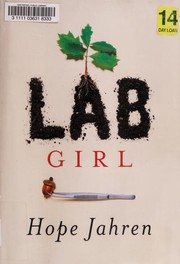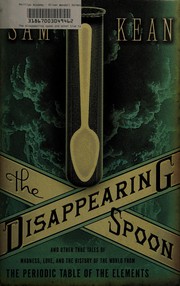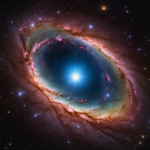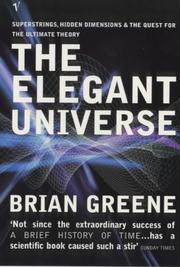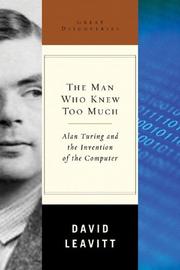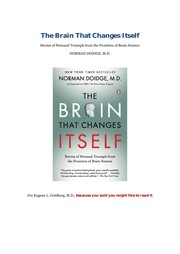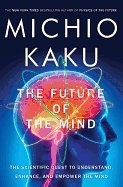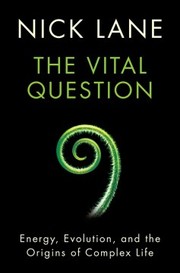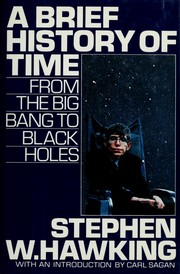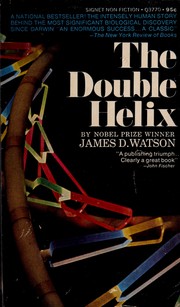Are you ready to explore the wonders of the universe through the pages of a book on science? Look no further! We’ve curated a list of the 20 best science books that will take you on a journey through the cosmos, delve into the mysteries of quantum physics, and unravel the complexities of the natural world. From captivating narratives to groundbreaking discoveries, these books offer a captivating blend of knowledge and storytelling. Whether you’re a science enthusiast or simply curious about the world around you, these science books will inspire, educate, and entertain you. Let’s dive into the fascinating world of science literature!
Contents
- 1 20 Best Science Books
- 2 Sapiens: A Brief History of Humankind
- 3 The Gene: An Intimate History
- 4 The Hidden Life of Trees: What They Feel, How They Communicate
- 5 The Emperor of All Maladies: A Biography of Cancer
- 6 The Immortal Life of Henrietta Lacks
- 7 The Sixth Extinction: An Unnatural History
- 8 The Innovators: How a Group of Hackers, Geniuses, and Geeks Created the Digital Revolution
- 9 Lab Girl
- 10 The Man Who Knew Infinity: A Life of the Genius Ramanujan
- 11 The Disappearing Spoon: And Other True Tales of Madness, Love, and the History of the World from the Periodic Table of the Elements
- 12 The Code Book: The Science of Secrecy from Ancient Egypt to Quantum Cryptography
- 13 The Elegant Universe: Superstrings, Hidden Dimensions, and the Quest for the Ultimate Theory
- 14 The Man Who Knew Too Much: Alan Turing and the Invention of the Computer
- 15 The Brain that Changes Itself: Stories of Personal Triumph from the Frontiers of Brain Science
- 16 The Future of the Mind: The Scientific Quest to Understand, Enhance, and Empower the Mind
- 17 The Vital Question: Energy, Evolution, and the Origins of Complex Life
- 18 The Big Picture: On the Origins of Life, Meaning, and the Universe Itself
- 19 The Origin of Species
- 20 A Brief History of Time
- 21 The Double Helix: A Personal Account of the Discovery of the Structure of DNA
- 22 Final Thoughts on Best Science Books
- 23
20 Best Science Books
Sapiens: A Brief History of Humankind
by Yuval Noah Harari
Sapiens: A Brief History of Humankind by Yuval Noah Harari is a fascinating book about science that takes readers on a journey through the history of our species. Harari explores the development of Homo sapiens from the Stone Age to the present day, shedding light on the key events and revolutions that have shaped our society and culture. With a captivating storytelling style, he delves into topics such as the agricultural revolution, the emergence of empires, and the impact of technology on human life.
Through his thought-provoking analysis, Harari challenges long-held beliefs about the nature of humanity and offers fresh insights into our past, present, and future. Readers will find themselves engrossed in this science book as they uncover the complexities of human evolution and the forces that have driven our species to where it stands today. Sapiens is a compelling and enlightening read that will leave readers with a deeper understanding of the human story.
The Gene: An Intimate History
by Siddhartha Mukherjee
The Gene: An Intimate History by Siddhartha Mukherjee is a captivating book about science that delves into the fascinating world of genetics. Mukherjee, a Pulitzer Prize-winning author and oncologist, takes readers on a journey through the history of genetics, from the discovery of the gene to the modern-day revolution in genetic engineering.
This science book explores the complex and often controversial ethical implications of genetic research, as well as the profound impact of genetics on human identity, behavior, and society. Mukherjee’s masterful storytelling and in-depth research make The Gene a compelling and thought-provoking read for anyone interested in understanding the fundamental building blocks of life.
Through personal anecdotes, scientific breakthroughs, and historical context, Mukherjee brings the world of genetics to life, making this book on science a must-read for both science enthusiasts and general readers alike.
The Hidden Life of Trees: What They Feel, How They Communicate
by Peter Wohlleben
The Hidden Life of Trees: What They Feel, How They Communicate by Peter Wohlleben is a fascinating science book that reveals the extraordinary world of trees. Wohlleben, a forester, shares his deep knowledge and passion for these majestic beings, uncovering their hidden secrets and intricate communication systems. Through captivating storytelling and scientific research, he delves into the ways trees support and protect each other, communicate through a complex network of roots and fungi, and even feel pain and emotions.
This eye-opening book about science challenges our perception of trees as silent, solitary organisms, and instead presents them as social, interconnected beings with a rich inner life. Readers will gain a newfound appreciation for the intelligence and resilience of trees, as well as a deeper understanding of their vital role in sustaining the planet’s ecosystems.
Whether you’re a nature enthusiast, a science buff, or simply curious about the wonders of the natural world, The Hidden Life of Trees offers a captivating journey into the heart of the forest.
The Emperor of All Maladies: A Biography of Cancer
by Siddhartha Mukherjee
The Emperor of All Maladies: A Biography of Cancer by Siddhartha Mukherjee is a captivating and insightful book about the history, science, and personal stories behind the deadly disease of cancer. The author, an oncologist, provides a comprehensive and engaging account of the evolution of cancer treatment, from ancient times to the present day.
This Pulitzer Prize-winning book on science delves into the complex nature of cancer and its impact on society, exploring the scientific breakthroughs and medical advancements that have shaped our understanding of the disease. Mukherjee skillfully weaves together scientific research, medical history, and personal narratives of patients and doctors, creating a compelling and informative narrative that is both educational and thought-provoking.
Readers will gain a deeper appreciation for the relentless pursuit of understanding and treating cancer, as well as the human stories behind the disease. This science book is a testament to the resilience of the human spirit and the ongoing battle against one of the most challenging adversaries of our time.
The Immortal Life of Henrietta Lacks
by Rebecca Skloot
The Immortal Life of Henrietta Lacks by Rebecca Skloot is a captivating non-fiction book that delves into the intersection of medical ethics, race, and the groundbreaking world of cell biology. This science book follows the story of Henrietta Lacks, a poor African American woman whose cells were taken without her knowledge in the 1950s and became the foundation for numerous scientific breakthroughs, including the development of the polio vaccine and advancements in cancer research.
Skloot skillfully weaves together the personal history of the Lacks family with the incredible impact of Henrietta’s cells, known as HeLa, on modern medicine. The book also raises thought-provoking questions about the ethical implications of using human cells for scientific research without consent. Through meticulous research and compelling storytelling, Skloot sheds light on the often overlooked contributions of people like Henrietta Lacks to the field of cell biology, making this book about science a must-read for anyone interested in the intersection of ethics and scientific advancement.
The Sixth Extinction: An Unnatural History
by Elizabeth Kolbert
The Sixth Extinction: An Unnatural History by Elizabeth Kolbert is a captivating science book that explores the ongoing mass extinction of species and its causes. Kolbert takes readers on a journey through time and around the world, examining the impact of human activity on the environment and the resulting loss of biodiversity. Through a combination of scientific research and vivid storytelling, she presents a compelling case for the current era being the sixth mass extinction event in Earth’s history.
Kolbert’s thought-provoking narrative delves into the interconnectedness of species and ecosystems, shedding light on the devastating consequences of human actions such as habitat destruction, climate change, and pollution. The book offers a sobering yet enlightening look at the fragility of life on our planet, and the urgent need for conservation and environmental stewardship. With its accessible writing and powerful message, The Sixth Extinction is a must-read book about science that will leave readers with a deeper understanding of the delicate balance of nature and the impact of human influence.
The Innovators: How a Group of Hackers, Geniuses, and Geeks Created the Digital Revolution
by Walter Isaacson
The Innovators: How a Group of Hackers, Geniuses, and Geeks Created the Digital Revolution by Walter Isaacson is a captivating book about science that delves into the fascinating history of the digital revolution. Isaacson takes readers on a journey through the lives of brilliant innovators who shaped the modern world through their groundbreaking contributions to technology. From Ada Lovelace, the world’s first computer programmer, to the pioneers of the internet and the creators of the personal computer, Isaacson explores the collaborative and often tumultuous efforts that led to the digital age we live in today.
Through meticulous research and engaging storytelling, Isaacson reveals the human stories behind the technological advancements that have revolutionized the way we live, work, and communicate. By highlighting the collaborative nature of innovation and the interplay between creativity and technology, The Innovators offers a compelling narrative that will inspire and inform anyone with an interest in the history of technology and the individuals who have shaped our modern world.
Lab Girl
by Hope Jahren
Lab Girl by Hope Jahren is a captivating and personal memoir that takes readers on a journey through the world of botany and scientific research. Through vivid and lyrical prose, Jahren shares her experiences as a geobiologist, exploring the wonders of the natural world while also delving into her own struggles and triumphs as a woman in the male-dominated field of science.
This book on science is not just about the study of plants and trees, but also about the resilience and passion required to pursue a career in the field of science. Jahren’s narrative is both insightful and inspiring, offering a unique perspective on the scientific process and the beauty of discovery.
Lab Girl is a science book that will appeal to both science enthusiasts and general readers alike, as it seamlessly weaves together the author’s personal story with fascinating insights into the natural world. Jahren’s love for the natural world and her dedication to her work shine through in this remarkable memoir.
The Man Who Knew Infinity: A Life of the Genius Ramanujan
by Robert Kanigel
The Man Who Knew Infinity: A Life of the Genius Ramanujan by Robert Kanigel is a captivating biography that delves into the extraordinary life of the self-taught Indian mathematician, Srinivasa Ramanujan. This compelling science book chronicles Ramanujan’s journey from his humble beginnings in India to his groundbreaking contributions to mathematics at Cambridge University.
Kanigel skillfully captures the essence of Ramanujan’s genius and the profound impact of his work on the field of mathematics. The book provides a vivid portrayal of Ramanujan’s struggles, triumphs, and the remarkable collaborations with leading mathematicians of his time.
Through meticulous research and engaging storytelling, Kanigel brings to life the brilliance and the humanity of Ramanujan, offering readers a glimpse into the world of pure mathematics and the enduring legacy of a true visionary. Whether you are a mathematics enthusiast or simply appreciate a captivating biography, The Man Who Knew Infinity is a must-read for anyone intrigued by the intersection of intellect, creativity, and perseverance.
The Disappearing Spoon: And Other True Tales of Madness, Love, and the History of the World from the Periodic Table of the Elements
by Sam Kean
The Disappearing Spoon: And Other True Tales of Madness, Love, and the History of the World from the Periodic Table of the Elements by Sam Kean is a captivating science book that delves into the fascinating stories behind the elements on the periodic table. Kean masterfully weaves together history, chemistry, and human drama to create a compelling narrative that brings the periodic table to life.
Readers will be engrossed by the quirky and often bizarre anecdotes about the discovery and use of various elements, as well as the impact they have had on human history and society. From the rivalry between scientists to the role of certain elements in love potions, this book offers a unique and entertaining perspective on the world of chemistry.
With Kean’s engaging storytelling and his ability to make complex scientific concepts accessible, The Disappearing Spoon is a must-read for anyone with an interest in chemistry, history, or simply enjoys a good story.
The Code Book: The Science of Secrecy from Ancient Egypt to Quantum Cryptography
by Simon Singh
The Code Book by Simon Singh is a captivating book about the art and science of cryptography. It delves into the fascinating history of secret codes and ciphers, from ancient Egyptian hieroglyphs to modern quantum cryptography. Singh skillfully weaves together stories of codebreakers and code makers, making the history of cryptography come alive. This science book explores the power of secrecy and the challenges of breaking codes, offering a glimpse into the world of cryptanalysis and the ingenious methods used to protect information.
Readers will be drawn into the world of spies, wars, and espionage as they learn about the pivotal role of cryptography in shaping historical events. The Code Book is not just a book about science, it is a captivating journey through the evolution of secret communication and the battle between code makers and code breakers. Whether you’re a history buff, a technology enthusiast, or simply curious about the hidden world of cryptography, this book on science is sure to leave you spellbound.
The Elegant Universe: Superstrings, Hidden Dimensions, and the Quest for the Ultimate Theory
by Brian Greene
The Elegant Universe, written by Brian Greene, is a captivating book about science that delves into the fascinating world of theoretical physics. Greene takes readers on a journey through the mind-bending concepts of superstrings, hidden dimensions, and the search for the ultimate theory of the universe. With clear and engaging explanations, he introduces complex ideas such as string theory and the possibility of multiple dimensions in a way that is accessible to non-scientists.
Through the use of analogies and thought experiments, Greene brings the abstract concepts of theoretical physics to life, allowing readers to grasp the mind-boggling implications of these science book. The Elegant Universe is not only a thought-provoking exploration of the nature of reality, but also a testament to the beauty and elegance of the universe as revealed by the laws of physics. Whether you are a science enthusiast or simply curious about the mysteries of the cosmos, this book is sure to captivate and inspire.
The Man Who Knew Too Much: Alan Turing and the Invention of the Computer
by David Leavitt
The Man Who Knew Too Much: Alan Turing and the Invention of the Computer by David Leavitt is a captivating book on science that explores the life and work of the brilliant mathematician and codebreaker, Alan Turing. Leavitt delves into Turing’s groundbreaking contributions to the development of the computer, from his early theoretical work on algorithms and the concept of a universal machine to his pivotal role in cracking the German Enigma code during World War II.
Leavitt also delves into Turing’s personal struggles as a gay man in a time when homosexuality was criminalized, shedding light on the social and political forces that tragically led to his persecution and untimely death. The science book masterfully weaves together the story of Turing’s intellectual achievements with the poignant narrative of his life, offering a compelling portrait of a visionary pioneer whose legacy continues to shape the modern world.
The Brain that Changes Itself: Stories of Personal Triumph from the Frontiers of Brain Science
by Norman Doidge
The Brain that Changes Itself by Norman Doidge is a fascinating book on neuroscience that explores the groundbreaking discoveries in the field of neuroplasticity. Doidge takes readers on a journey through the stories of individuals who have triumphed over various neurological challenges by harnessing the brain’s remarkable ability to rewire and adapt. Through compelling case studies and in-depth research, Doidge illustrates how the brain can heal, change, and reorganize itself, offering hope and inspiration to those facing brain-related disorders.
This science book delves into the pioneering work of scientists and doctors who have revolutionized our understanding of the brain’s plasticity, challenging long-held beliefs about the brain’s fixed nature. Doidge’s engaging storytelling and accessible explanations make complex scientific concepts relatable and comprehensible to a wide audience, making this book about neuroscience a must-read for anyone interested in the potential of the human brain. The Brain that Changes Itself is a captivating exploration of the power of neuroplasticity and the resilience of the human spirit.
The Future of the Mind: The Scientific Quest to Understand, Enhance, and Empower the Mind
by Michio Kaku
The Future of the Mind: The Scientific Quest to Understand, Enhance, and Empower the Mind by Michio Kaku is a captivating science book that delves into the mysteries of the human mind and explores the potential for enhancing and empowering it. Kaku, a renowned theoretical physicist, takes readers on a fascinating journey through the latest breakthroughs in neuroscience, psychology, and physics, offering a visionary look at the future of the mind.
With his signature clarity and enthusiasm, Kaku explores mind-bending concepts such as telepathy, telekinesis, and even the possibility of uploading memories and consciousness. He also discusses the ethical implications of these advancements, raising thought-provoking questions about the nature of consciousness and the boundaries of the human mind.
Whether you’re a seasoned science enthusiast or simply curious about the potential of the human mind, Kaku’s book on science offers an engaging and accessible exploration of the frontiers of neuroscience and the exciting possibilities that lie ahead.
The Vital Question: Energy, Evolution, and the Origins of Complex Life
by Nick Lane
The Vital Question: Energy, Evolution, and the Origins of Complex Life by Nick Lane is a fascinating book about science that delves into the fundamental question of why complex life forms exist on Earth. Nick Lane, a renowned biochemist, explores the origins of life and the role that energy has played in the evolution of complex organisms.
Lane’s engaging writing style and in-depth research make this science book a captivating read for anyone interested in biology, evolution, and the mysteries of life. He discusses the role of energy in the development of life, from the earliest single-celled organisms to the complex creatures that inhabit the planet today.
Through a combination of scientific evidence and thought-provoking theories, Lane takes readers on a journey to uncover the book on science behind the origins and evolution of life. Whether you’re a science enthusiast or simply curious about the mysteries of life, The Vital Question offers a compelling exploration of the science behind the emergence of complex life forms on Earth.
The Big Picture: On the Origins of Life, Meaning, and the Universe Itself
by Sean Carroll
The Big Picture: On the Origins of Life, Meaning, and the Universe Itself by Sean Carroll is a captivating science book that delves into the fundamental questions of our existence. Carroll, a renowned physicist and cosmologist, explores the origins of life, the nature of consciousness, and the fundamental laws that govern the universe.
With his engaging writing style and deep knowledge of the subject matter, Carroll takes readers on a thought-provoking journey through the realms of science and philosophy. He addresses complex topics such as quantum mechanics, evolution, and the nature of time in a way that is accessible to both experts and lay readers.
Through his exploration of the science behind our existence, Carroll offers a comprehensive and enlightening perspective on the big questions that have puzzled humanity for centuries. The Big Picture is a must-read for anyone curious about the mysteries of the universe and our place within it.
The Origin of Species
by Charles Darwin
The Origin of Species by Charles Darwin is a groundbreaking book on science that revolutionized the way we understand the natural world. Published in 1859, this seminal work introduced the theory of evolution by natural selection, which challenged the prevailing beliefs about the creation and diversity of species. Darwin’s meticulous observations and compelling arguments laid the foundation for modern biology and had a profound impact on the fields of natural history, genetics, and ecology.
By carefully examining the intricate web of life through the lens of adaptation and survival, Darwin presented a compelling case for the interconnectedness of all living organisms. His insights into the process of evolution and the diversity of life forms have had a lasting influence on our understanding of the natural world. The Origin of Species continues to be a pivotal book about science, sparking curiosity and inquiry into the mysteries of the living world.
A Brief History of Time
by Stephen Hawking
A Brief History of Time by Stephen Hawking is a groundbreaking book on science that takes readers on a journey through the universe, exploring the fundamental concepts of space, time, and the nature of reality. Hawking, a renowned physicist, delves into complex scientific theories such as the Big Bang, black holes, and the nature of time, presenting them in a way that is accessible to non-experts. Through engaging storytelling and clear explanations, he invites readers to ponder the mysteries of the universe and the laws that govern it. This science book is a thought-provoking exploration of the nature of the cosmos, making it a must-read for anyone curious about the wonders of the universe. Hawking’s ability to distill complex scientific concepts into understandable and engaging prose makes A Brief History of Time a timeless classic that continues to inspire and educate readers of all backgrounds.
The Double Helix: A Personal Account of the Discovery of the Structure of DNA
by James D. Watson
The Double Helix is a captivating book about science that delves into the thrilling world of scientific discovery. Written by James D. Watson, one of the key figures in the groundbreaking discovery of the structure of DNA, this personal account provides a fascinating insight into the competitive and often controversial world of scientific research. Watson takes readers on a journey through the intense race to unravel the mysteries of DNA, offering a candid and at times controversial portrayal of the scientists involved. The book provides a unique blend of scientific insight, personal anecdotes, and the human drama behind one of the most significant discoveries in the history of genetics. Through vivid storytelling and engaging narrative, Watson brings the world of molecular biology to life, making this science book a compelling and accessible read for anyone with an interest in the intersection of science and human endeavor.
Final Thoughts on Best Science Books
Exploring the world of Science through literature is a fascinating journey, and these 20 best books about science offer a diverse and captivating collection of works. From deep dives into physics and biology to thought-provoking discussions on the nature of the universe, these books provide readers with a wealth of knowledge and inspiration. Whether you’re a science enthusiast or simply curious about the wonders of the natural world, these books are sure to ignite your passion for learning. Dive into these insightful reads and expand your understanding of the world around you!
Which book about Science is best?
The best book on Science can vary with personal preference, but three widely recommended titles are:
- Sapiens: A Brief History of Humankind by Yuval Noah Harari,
- The Gene: An Intimate History by Siddhartha Mukherjee,
- The Hidden Life of Trees: What They Feel, How They Communicate by Peter Wohlleben.
Each offers valuable insights and could be a great starting point.
What are the best books to learn about Science?
For those looking to learn about Science, there is a wealth of literature that can provide a comprehensive understanding of the subject. Some of the most highly recommended books include:
- Sapiens: A Brief History of Humankind by Yuval Noah Harari,
- The Gene: An Intimate History by Siddhartha Mukherjee,
- The Hidden Life of Trees: What They Feel, How They Communicate by Peter Wohlleben,
- The Emperor of All Maladies: A Biography of Cancer by Siddhartha Mukherjee,
- The Immortal Life of Henrietta Lacks by Rebecca Skloot,
- The Sixth Extinction: An Unnatural History by Elizabeth Kolbert,
- The Innovators: How a Group of Hackers, Geniuses, and Geeks Created the Digital Revolution by Walter Isaacson,
- Lab Girl by Hope Jahren,
- The Man Who Knew Infinity: A Life of the Genius Ramanujan by Robert Kanigel,
- The Disappearing Spoon: And Other True Tales of Madness, Love, and the History of the World from the Periodic Table of the Elements by Sam Kean
These books offer a range of perspectives on Science, covering various aspects and approaches to the subject.
What are the best books about Science?
The best books about Science are:
- Sapiens: A Brief History of Humankind by Yuval Noah Harari,
- The Gene: An Intimate History by Siddhartha Mukherjee,
- The Code Book: The Science of Secrecy from Ancient Egypt to Quantum Cryptography by Simon Singh,
- The Elegant Universe: Superstrings, Hidden Dimensions, and the Quest for the Ultimate Theory by Brian Greene,
- Lab Girl by Hope Jahren,
- The Sixth Extinction: An Unnatural History by Elizabeth Kolbert.
Each offers unique insights into the subject. While these books about Science are highly regarded, it’s important to note that any list of ‘best’ books is subjective and reflects a range of opinions.
What are the best Science books of all time?
Choosing the best Science books of all time can vary depending on who you ask, but five titles that are often celebrated include
- Sapiens: A Brief History of Humankind by Yuval Noah Harari,
- The Gene: An Intimate History by Siddhartha Mukherjee,
- The Immortal Life of Henrietta Lacks by Rebecca Skloot,
- Lab Girl by Hope Jahren,
- and The Code Book: The Science of Secrecy from Ancient Egypt to Quantum Cryptography by Simon Singh.
Each of these books has made a significant impact in the field of Science and continues to be influential today.








